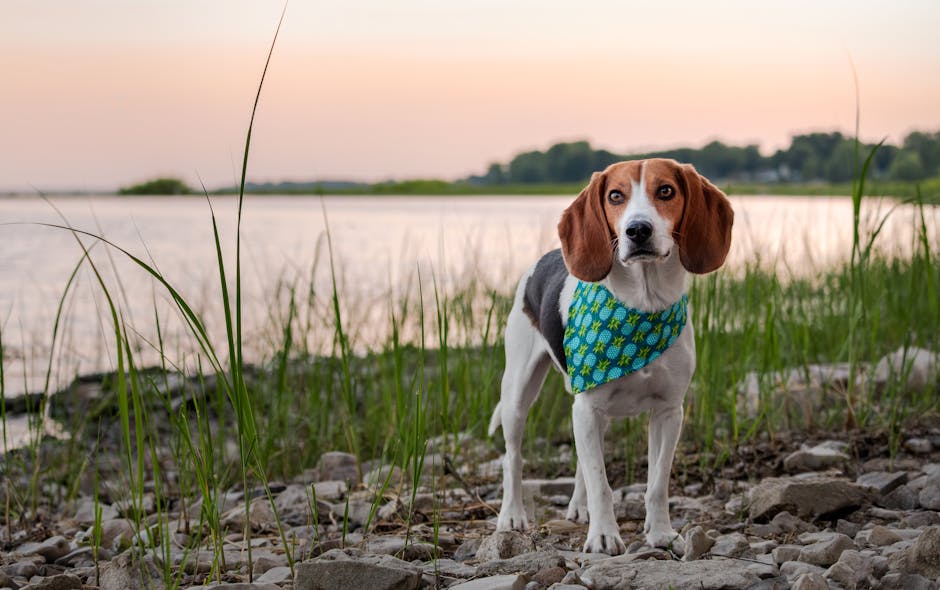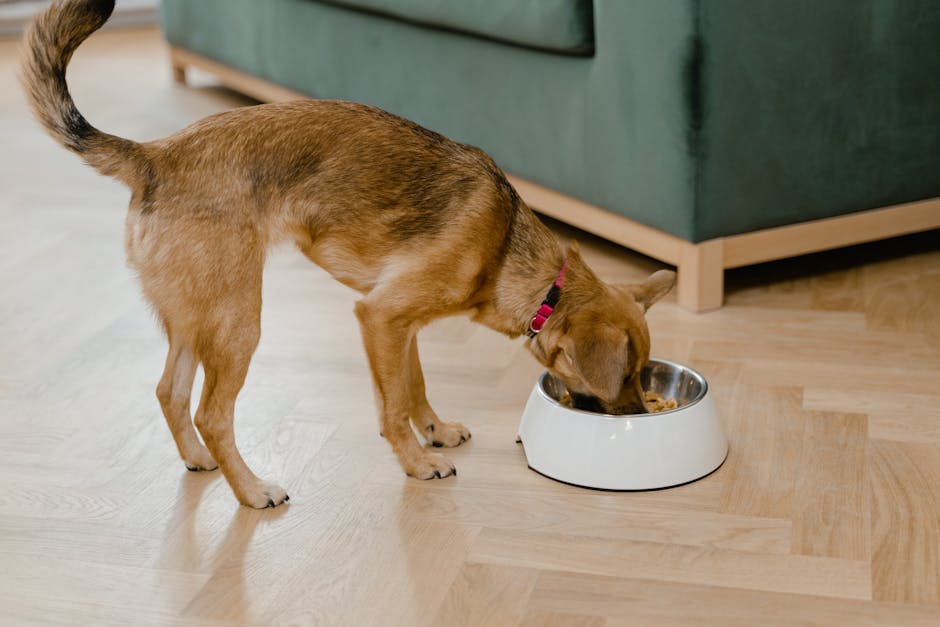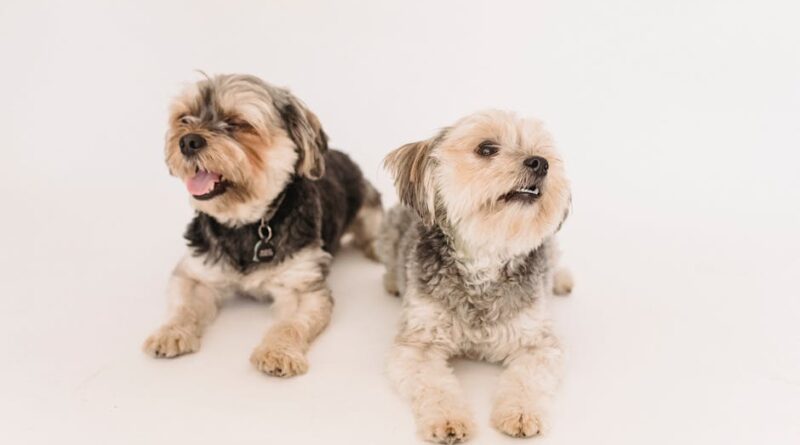Exploring the Best Collars for Small Dog Breeds
When it comes to choosing the right collar for your small furry friend, there are a plethora of options available in the market. From traditional flat collars to martingale collars, harnesses, and even GPS collars, the choices can be overwhelming. But fear not, as we delve into the world of ‘Best Collars for Small Dog Breeds’, we will explore the various types of collars, their benefits, and how to select the perfect one for your pup.
The Importance of Choosing the Right Collar

Collars are not just a fashion statement for your dog; they serve a crucial purpose in keeping your furry companion safe and secure. A well-fitted collar allows you to attach an ID tag with your contact information, making it easier for your dog to be returned to you if they ever get lost. Additionally, collars are essential for leash training and controlling your dog during walks.
For small dog breeds, choosing the right collar is even more critical due to their delicate necks and petite sizes. Ill-fitted or uncomfortable collars can cause discomfort, chafing, or even injury to your small dog. That’s why it’s essential to select a collar that not only looks stylish but also prioritizes your dog’s safety and comfort.
Types of Collars for Small Dog Breeds

When it comes to selecting a collar for your small dog, there are several options to choose from. Each type of collar serves a different purpose and is suited for specific needs. Let’s explore some of the best collar options for small dog breeds:
Flat Collars

Flat collars are the most common type of collar found in the market. They consist of a flat strip of material (usually nylon or leather) with a buckle or snap closure. Flat collars are great for attaching ID tags and can be personalized with your dog’s name and your contact information. However, it’s essential to ensure that the collar fits snugly but not too tight around your dog’s neck to prevent chafing or discomfort.
Martingale Collars

Martingale collars, also known as limited-slip collars, are specially designed for dogs with narrow heads such as Greyhounds and Whippets. These collars tighten slightly when the dog pulls on the leash, providing gentle control without choking the dog. Martingale collars are a great option for small breeds that tend to slip out of traditional collars due to their size.
Harnesses
For small dog breeds, harnesses are an excellent alternative to collars, especially for dogs with respiratory issues or neck injuries. Harnesses distribute the pressure evenly across the dog’s chest and back, reducing strain on the neck and preventing choking. There are various types of harnesses available, including step-in harnesses, vest harnesses, and front-clip harnesses, each catering to different needs and preferences.
GPS Collars
GPS collars are a technological marvel that allows you to track your dog’s location in real-time using GPS technology. These collars are perfect for small breeds that are prone to wandering or getting lost. With a GPS collar, you can set up safe zones and receive notifications if your dog strays outside the designated area. Some GPS collars also come with activity trackers and health monitoring features, making them a versatile option for tech-savvy pet owners.
Choosing the Right Collar for Your Small Dog
When selecting a collar for your small dog, there are several factors to consider to ensure you make the best choice for your furry friend. Here are some tips to help you choose the right collar:
Size and Fit
It’s crucial to measure your dog’s neck size accurately before purchasing a collar. A collar that is too tight can cause discomfort and restrict your dog’s movement, while a collar that is too loose may slip off easily. Ensure that you can fit two fingers comfortably between the collar and your dog’s neck to ensure a proper fit.
Material
The material of the collar plays a significant role in your dog’s comfort and safety. Opt for high-quality materials such as nylon, leather, or neoprene that are durable, comfortable, and do not cause irritation to your dog’s skin. Avoid collars with rough edges or sharp metal components that could injure your dog.
Visibility and Reflectivity
For evening walks or outdoor adventures, consider a collar with reflective or glow-in-the-dark features to enhance your dog’s visibility in low-light conditions. Reflective collars can help drivers and pedestrians spot your dog from a distance, reducing the risk of accidents or getting lost.
Comfort and Safety
Prioritize your dog’s comfort and safety when choosing a collar. Avoid collars with prongs, spikes, or excessive decorations that could pose a choking hazard or cause discomfort to your dog. Opt for collars with padding or soft lining to prevent chafing and irritation.
Water Resistance
If your dog loves water activities or tends to get dirty often, consider a water-resistant or waterproof collar that can withstand exposure to moisture. Water-resistant collars are easy to clean and maintain, ensuring your dog stays comfortable and odor-free even after a swim or a muddy play session.
Common Misconceptions about Collars for Small Dog Breeds
There are several misconceptions surrounding collars for small dog breeds that may lead pet owners to make uninformed decisions. Let’s debunk some common myths and misunderstandings:
Myth #1: Small dogs don’t need collars
Contrary to popular belief, small dogs require collars just as much as larger breeds do. Collars are essential for attaching ID tags, controlling your dog during walks, and ensuring their safety and security. Regardless of their size, all dogs benefit from wearing a collar.
Myth #2: Harnesses are only for large dogs
While harnesses are often associated with large and powerful breeds, they are suitable for small dogs as well. In fact, harnesses are beneficial for small breeds with delicate necks, as they distribute the pressure evenly across the chest and back, reducing strain on the neck and preventing injuries.
Myth #3: All collars are the same
Not all collars are created equal, and it’s essential to choose a collar that is suitable for your dog’s size, breed, and specific needs. Each type of collar serves a different purpose, whether it’s for leash training, control, or safety. Selecting the right collar can make a world of difference in your dog’s comfort and well-being.
Conclusion
Choosing the best collar for your small dog is a decision that should not be taken lightly. The right collar can enhance your dog’s safety, comfort, and style, while the wrong collar can cause discomfort, injury, or even pose a risk to your dog’s well-being. By considering factors such as size, fit, material, visibility, and comfort, you can select a collar that meets your dog’s needs and preferences.
Remember, your dog’s collar is more than just an accessory; it’s a vital tool for keeping your furry friend safe and secure. Whether you opt for a traditional flat collar, a martingale collar, a harness, or a GPS collar, prioritize your dog’s comfort, safety, and well-being above all else. Invest in a high-quality collar that reflects your dog’s personality and ensures they are always by your side, safe and sound.




